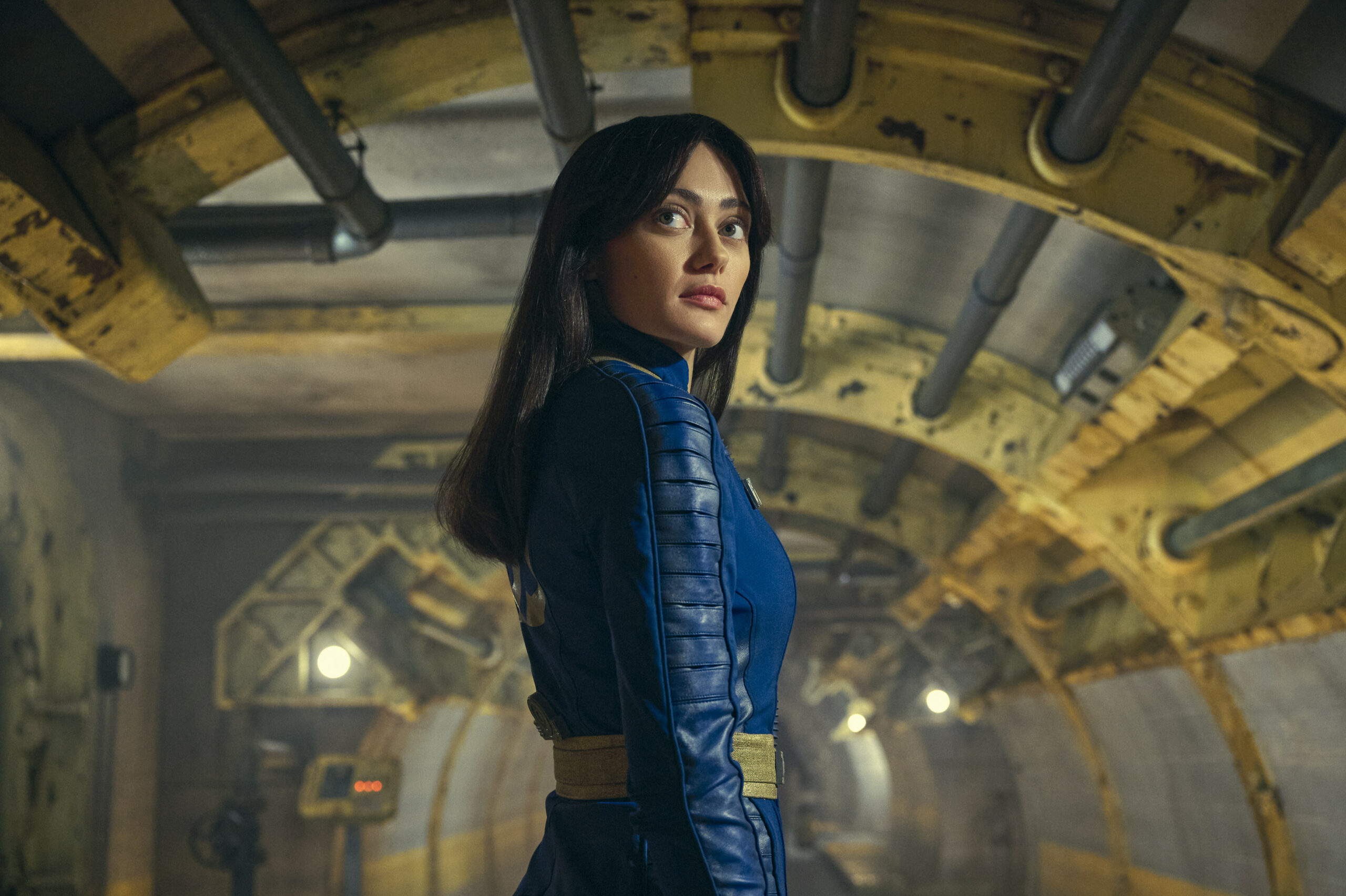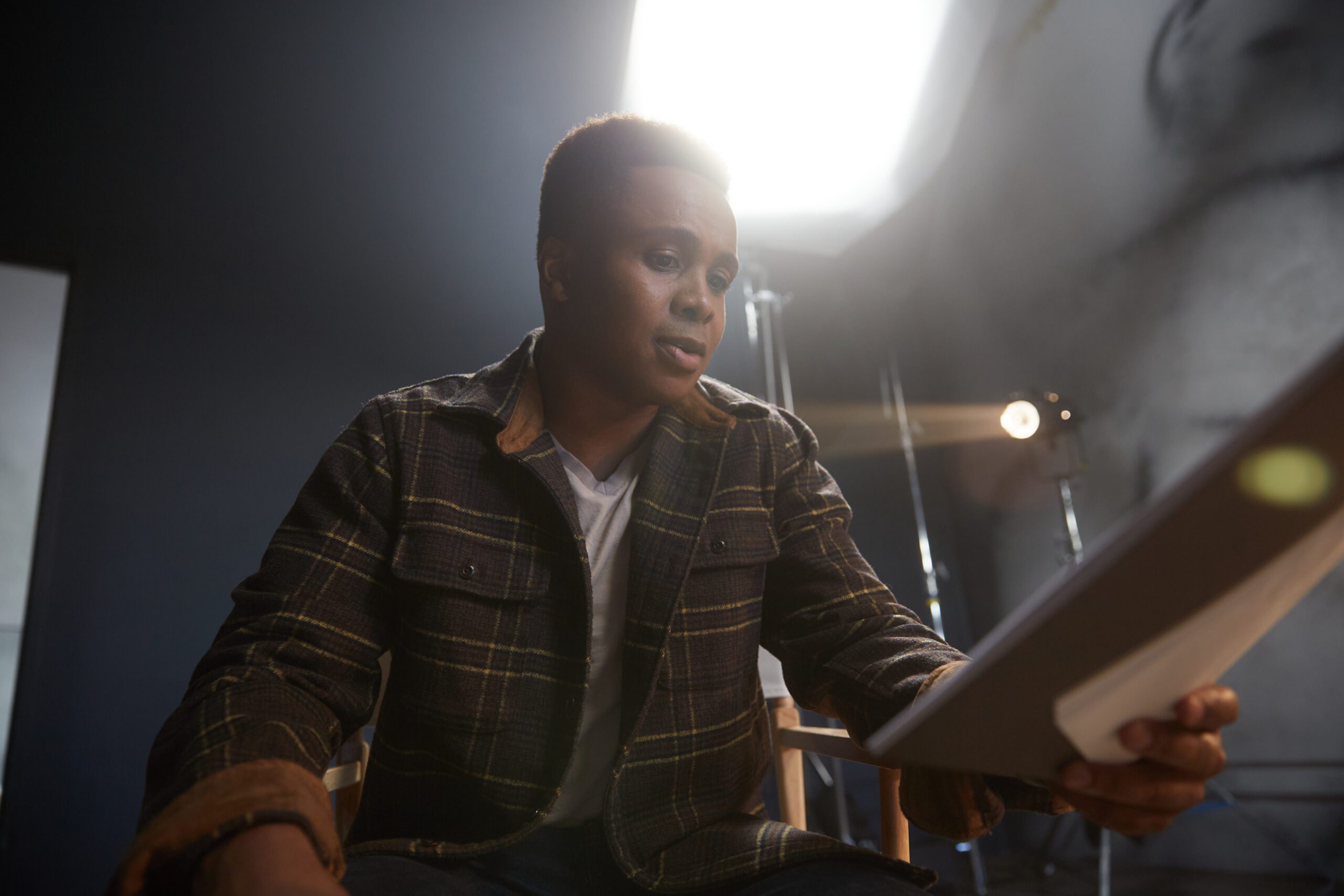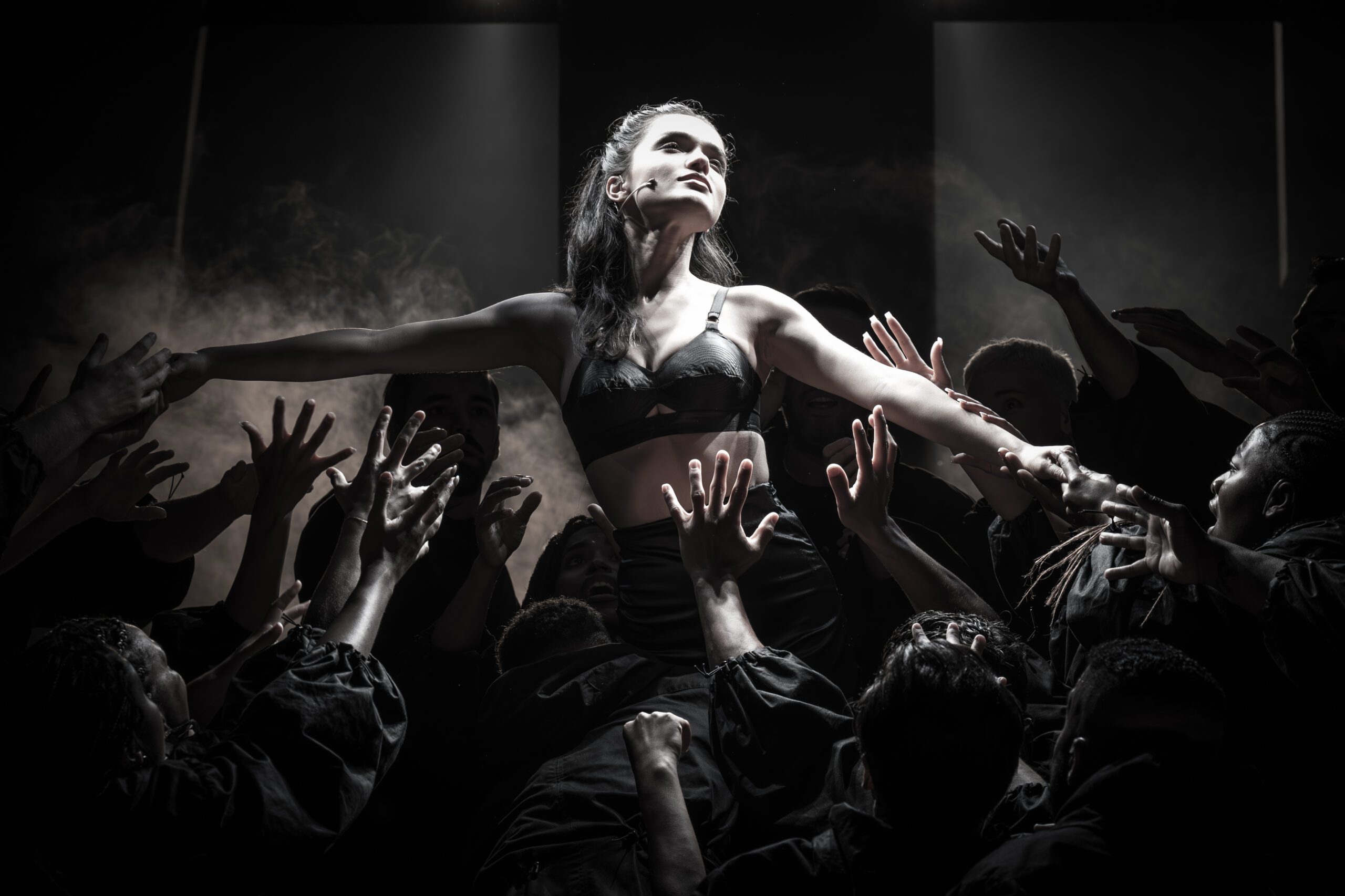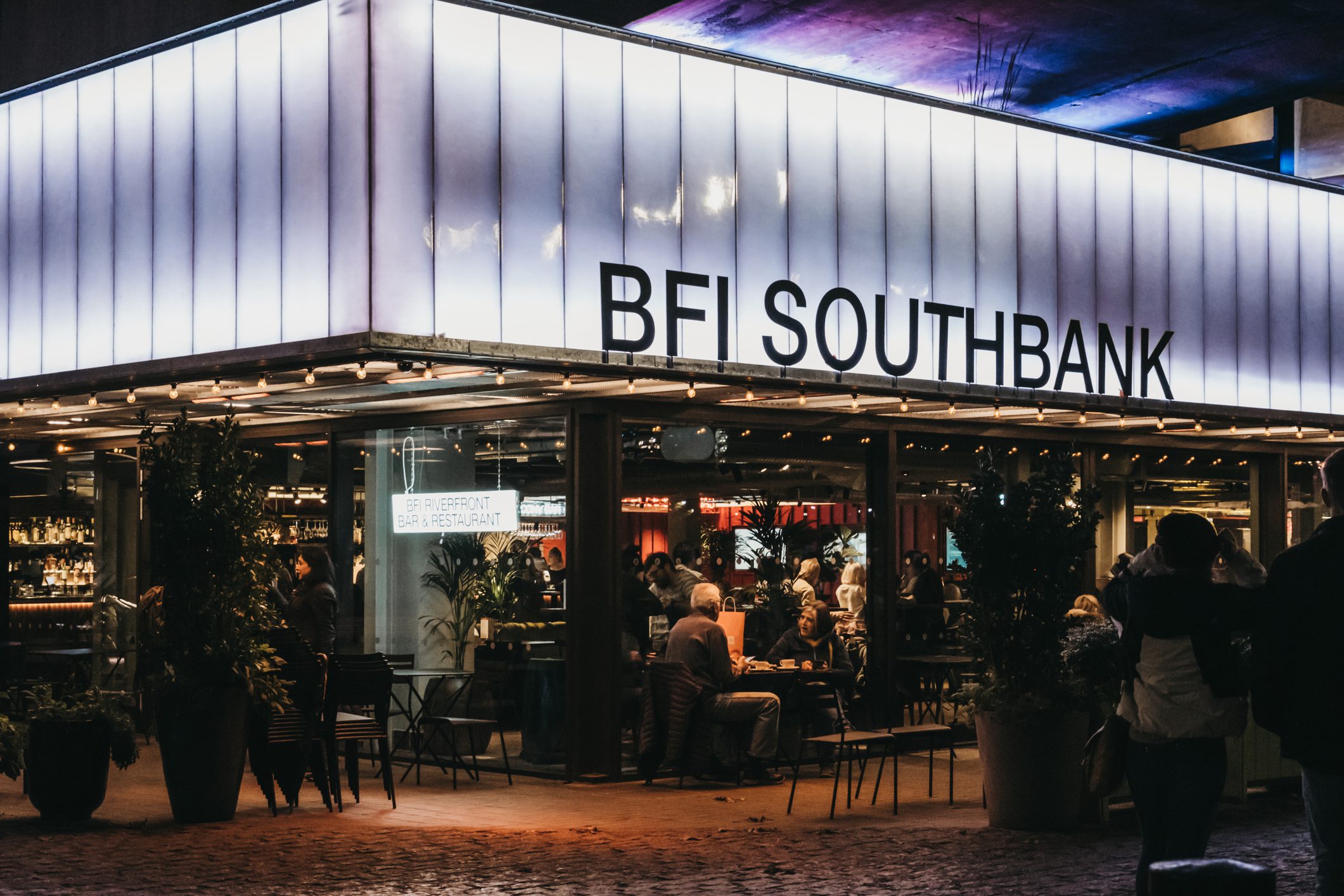‘Yellowjackets’ actress Ella Purnell takes us behind the scenes on ‘Fallout’, from facing fake monsters to choreographing fights.
Ella Purnell is no stranger to appearing on our screens in big-budget productions. She’s had roles in Army of the Dead, Miss Peregrine’s Home for Peculiar Children, Kick-Ass 2, Yellowjackets and, most recently, Amazon’s hit TV series Fallout, based on the popular video game franchise.
Video game adaptations have become the new must-watch phenomenon, with shows like Halo, The Witcher and The Last of Us delighting existing fans and newcomers alike. Even though Ella’s character, ‘Lucy’, is an original creation for the show, it hasn’t stopped her from becoming a fan favourite.
We had the chance to speak to Ella about her experience auditioning for and performing in Fallout, how she first started out in the industry, and some of the other work she’s done on Showtime’s Yellowjackets and Riot Games’ Arcane: League of Legends. Here’s what she shared:
Hi Ella! What first drew you to a career in the performing arts?
I started when I was eight, so I’m not really sure that I was making well-informed decisions about a career in the arts! I don’t think I really knew what a career was. I liked to sing and dance and my mum put me in Sylvia Young’s for singing and dancing lessons. Then, someone at the agency at Sylvia Young said, “Would you want to be on the agency?” And my mum was like, “Yes, she would love to be on the agency.” So it just happened from there. It just was something fun that I would do after school sometimes.
It probably wasn’t until I was probably 16 or 18 that I started to want to do something else – explore different career options. I needed to question everything, I needed to reprioritize and figure out if this was still a priority for me, if this was even something I really wanted to do rather than just a fun hobby. I had to fall back in love with acting on my own terms.
Not to say it was not on my own terms, but just that I hadn’t really thought it through. I was a kid. I was very concerned with just playing with my mates and what was I going to wear to school on Tuesday. I wasn’t really thinking about my career. It’s been a long journey, but now I’m very committed and happy with where I’m at.
A lot of people assume you need to go to drama school to become an actor, but you had a different route into the industry. Could you tell us about this?
I definitely don’t think you have to go to drama school – it’s down to personal preference. It’s also hard, at least it was this way 10 years ago when everyone was going to drama school and I wasn’t. The imposter syndrome is so real. I still get it, even though I know I’m more than qualified to be where I am. Still, when I’m working on British productions, there’s such an emphasis on going to drama school. I don’t know the names of any plays, I don’t know the names of the amazing playwrights, I didn’t watch what was on at the National last year, and it’s really quite hard to feel like a ‘real actor’ if you haven’t done those things.
Honestly, going to the US broadened my understanding of what this industry is and how many different career paths there are within it. When I did Army of the Dead, I worked with all kinds of different actors. I learned about Bollywood. I learned how hard it is to lose your accent – and how essential it is to lose your accent. So, all of that imposter syndrome initially melted away when I realised there truly is no one size fits all.
We’re so incredibly blessed to have such a rich and gorgeous theatre world in the UK and our film and TV shows are some of the best in the world. I’m so proud to be British and to come from British movies, but there is no one size fits all. I think you’re probably going to have a harder time getting into theatre if you haven’t been to drama school, but there’s other things you can do.
Going to the National Youth Theatre was another thing I did when I was 16. There’s other ways to get formal training than drama school. It’s not for everyone. Some people really crave a structured educational environment after they leave school, and they really love acting and want to act on a day-to-day basis. I was never one of those people.
You played ‘Lucy’ in Amazon’s hit-series ‘Fallout’. How did you first become involved in this project?
I had a Zoom, which came through my US agency, with Jonathan Nolan (who’s the director and executive producer) and Geneva and Graham, who were the writers. I think Yellowjackets had just come out a couple months prior. They wanted to talk to me and meet me before they sent me the script and they wanted to explain the tone. I’m glad that they did, because if I had just done a cold reading, I probably would not have got the part.
It’s very, very specific – Lucy especially. They described her to me as ‘Ned Flanders’ meets ‘Lesley Knope’ but in the apocalypse – also she could kill you! I felt like I had a really deep understanding of her. Then we did an audition on Zoom, which is always a horrible experience because you’re trying to balance your laptop on 12 stacks of books. I would always prefer an audition over self-taping and recommend getting your friend to help you with your auditions. Somehow, I got the part and here we are.
In the series, your character gets into a lot of fights. Could you tell us about the process of choreographing them?
We were very lucky to have a fantastic stunt coordinator and talented stunt team. I had a wonderful stunt double called Hannah Scott and the stunt team was enormous. They’ll choreograph everything in advance.
We did some rehearsals for the first big fight sequence – the one with Lucy and her new husband. That was the only one we rehearsed. We probably did about four hours of rehearsal for that first fight sequence. The rest of them we picked up moments before we started filming, which isn’t always the way. I think it depends on your comfort level. I’m very comfortable doing stunts.
I knew that this was going to be a physical role and I knew this was going to be a more demanding role than anything I’d ever done before, so it was important to me that I got a personal trainer ahead of filming.
I started working out, not because I wanted to particularly change my body, more because I just wanted to be fit. It was probably the smartest thing I’ve ever done because I was exhausted and it was an incredibly physically demanding job. You think, “Oh, I can just run up that hill one time.”
No, you’re going to have to do it 250 times and you’re going to have to do it carrying all of this heavy gear. But it’s also incredibly rewarding. It can also help you connect to your character in a different way when you’re doing stunts and other physical stuff, because sometimes you forget about your body when you’re doing TV. The pace is so fast and you don’t always have time to remember your formal or informal training.

Ella Purnell as ‘Lucy’ in ‘Fallout’ / Image credit: Amazon MGM Studios
Your character witnesses some violent injuries and monsters like ‘The Gulper’. How do you act convincingly to something that isn’t there?
Actually, in Fallout, most of it was as real as possible. ‘The Gulper’ was a giant puppet. They built it and it looks how it looks in the show – just his head. You’re lucky to get someone like Jonathan Nolan, who really does believe in doing things as realistically as possible. Of course, green screen and people in green leotards with dots on their faces is always going to be a part of your life.
I know actors that absolutely hate doing green screen. I don’t mind it. The only way it’s different is it’s a bit more boring because you haven’t got anything to react to in real time. So, after take 500, you’re like, “Oh, let’s get this over with.”
Sometimes when you’re working with other actors, you feed off the energy and it keeps you going through the long days. Green screen can be harder to keep your energy up for.
I suppose all acting is just pretending, isn’t it? It’s pretending that your spouse has cheated on you, or your dog’s been run over. Everybody does it in a different way. I sometimes draw on feelings. Your body stores emotion, so if you figure out how to – and you can research a lot of this stuff online – you can tap into those emotions by reliving those memories. You can do that even for a Gulper!
The struggle is taking something that is incredibly unrealistic, something that you hope would never really happen in real life – like a 15-foot mutated salamander – and going, “What would I do if I was being attacked by a 15-foot salamander?” and then not laughing. The challenge is actually trying to just imagine the most terrifying thing you’ve ever seen in your life.
The first thing you always need to do when you find any kind of character, especially if they are a villain, is find things to relate to about that character. Find similarities between you and that character. Find moments that you go, “I know exactly what that feels like.”
So with Lucy, instead of saying, “What would it be like to be attacked by a giant 15-foot salamander?” say, “What would it be like to be so terrified in a foreign land that you’ve never been to and up against a creature that you didn’t even know existed?” Anyone can imagine that.
‘Fallout’ is based on a much-loved video game series. Did you feel any extra pressure on-set because of this?
I played the games as research, which is hilarious because what a great job! I get to play video games and call that work. They said I didn’t have to, but I thought for me, personally, I love doing prep. I know that Lucy was an original character who doesn’t exist in the games, but I wanted to understand Vault-Tec and the tone and style. Also, it allowed me a greater enjoyment while filming the show because I got to notice all the little details, how much of a big deal it was that I got to wear the Vault suit and wear the Pip-Boy. What an honour that was!
When you are doing anything that’s incredibly beloved or has a strong fan base already, there’s an added element of pressure because you want to do it justice. You know what it’s like to have a book that you love butchered. It hurts and we don’t want to do that to other people. But you have to learn to filter out that noise and all you can do is do your job.
You have to work with people that you trust, you have to work with people that you really believe in. If the series creators were to say, “Okay, we are not going to pay any attention to the source material. We’re going to scrap that. We’re going to make our own version of Fallout,” I’m not sure I would’ve done it, because knowing Fallout and the tone and style, you’d be an idiot to waste that. I wholeheartedly trusted the creators.
Just try to be the best actor you can and not worry about what the people are doing. That’s the art of what we do – it’s the collaboration. If each person does the best they can do and leans on each other and takes inspiration from each other, you’ll make something really unique that no one’s ever done before, hopefully.
You also played ‘Jackie’ in ‘Yellowjackets’ and – spoiler alert! – your character dies. How do you maintain your composure when you’re playing dead?
Was it just me, or did we all pretend to be dead when we were kids to scare our mums? We all at some point said, “Mum,” and then fell down on the ground in the kitchen and pretended to be dead because we wanted to know what they would do. Maybe I was just a psychopath as a child?
It’s always in us to pretend. There’s this weird professionality that comes with it when you are an actor. The moment they call, “Action,” you just do it, whether it’s uncomfortable, or awkward, or you feel incredibly self-conscious, or you want to laugh, or you’re hungry, or you’ve got the hiccups – it doesn’t matter. It’s this strange thing that comes out from inside you. For me, it’s sometimes just a switch.
That’s not to say I’m not still thinking things. I’m aware of the sound that’s going on over there that’s not supposed to be there, or the mark that I didn’t quite hit, or that somebody’s blocking the camera, so I need to lean slightly to my left so the camera can see me. You’re still thinking, but you are just behaving and speaking in a way that is slightly not yours.
That’s not how everyone does it – it’s how I do it. I’d say 40% of it is technical and 60% of it is acting.
When your character’s body was on the bonfire, was that you in make-up or a body cast?
That’s a dummy. I was doing Fallout and then I just got all these texts from my Yellowjackets friends with selfies of them with my burnt body. I was like, “What is happening?”
What’s weird is that it does actually look like me! I thought they just used a stock body double but they didn’t. They scanned my body and then made my body. That’s weird because I can actually slightly recognise my own body.
You’ve also done voice work, like ‘Jinx’ in ‘Arcane: League of Legends’. How does voice work and voicing a character like Jinx compare to playing a real life character like ‘Jackie’ or ‘Lucy’?
I like doing voice over because you don’t have to do as much prep work and it does feel so much more collaborative because, for the most part, it’s just you and the director. You say the line, they give you feedback, you say the line, they give you feedback, you say it one more time and then you move on to the next line. You do it line by line, so it takes a lot longer.
But you are able to channel everything into just the way your voice sounds. You know that you have to give a slightly elevated performance – you have to make your voice bigger, brighter, louder, more melodic. It’s a new challenge.
It’s also fun because you wouldn’t be able to do that in on-screen acting. If you were to do that in on-screen acting, it would probably look a bit silly and you’d come across as not very believable.
Finally, what’s next for you?
I’m currently working on a film called The Scurry by Craig Roberts, which is going really well. We’re in Wales – sunny Wales! It’s a lovely crew and cast and I’m really enjoying doing a British film. That’s what I started out doing. It’s really nice to come back to this.
Thank you, Ella, for giving us such an interesting insight into your career!
’Fallout’ is available to watch in the UK on Amazon Prime. You can also watch Ella in the upcoming British series ‘Sweetpea’ on Sky in the UK.
Take a look at our website for more casting stories and interviews with casting directors and agents.



















